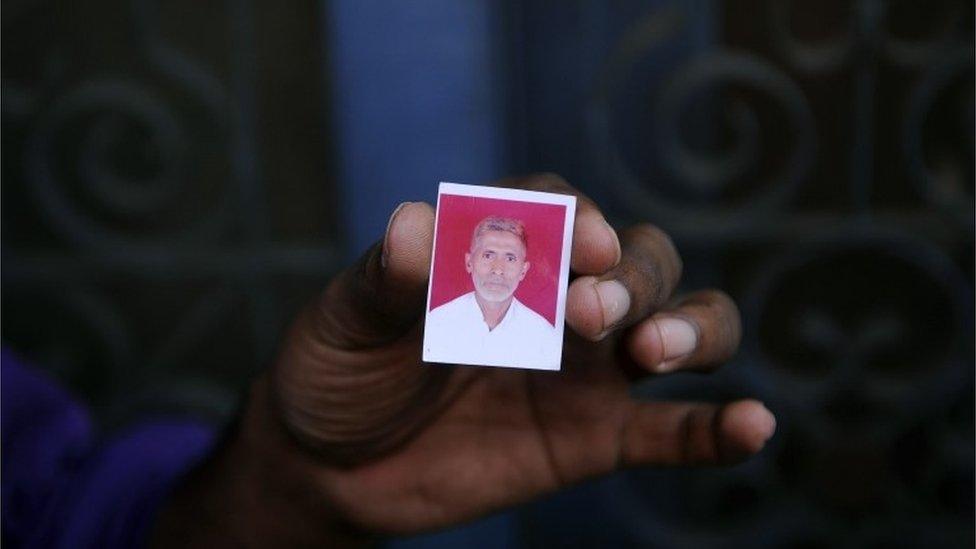India beef lynching: Case against victim's family for cow slaughter
- Published

Mohammad Akhlaq was a farm worker
A court has ordered the police to register a case against the family of a man who was killed last year over allegations that they had been storing and consuming beef at home.
Mohammad Akhlaq was beaten to death by a group of men in Dadri in the northern Indian state of Uttar Pradesh.
Eighteen people are on trial for his murder.
The slaughter of cows, considered sacred by Hindus, is banned in many Indian states.
The court in Gautam Buddh Nagar, near the Indian capital, Delhi, gave the order after hearing a petition filed by one of Mr Akhlaq's neighbours.
Mohammad Danish, Mr Akhlaq's son, said he "hoped a fresh investigation will bring out the truth".
"I am hoping for a fair probe. The real facts will be revealed then," he told the CNN-IBN news channel.
A lab test cited widely in the aftermath of the killing in September had said that the meat allegedly found in his refrigerator was mutton and not beef.
However, a new lab report, revealed in June by the lawyers of 18 people on trial for his murder, said that the meat in question was, in fact, beef.
Later, it was also revealed that the meat was never in his house, but found inside a bin near his home.
Although police have said that the type of meat is irrelevant to the murder case, the defence team has been using the new test results to demand the release of the 18 suspects on the grounds that they were "provoked" into attacking Mr Akhlaq.
Uttar Pradesh is one of the 10 Indian states where the slaughter of cow, calf, bull and bullock is completely banned.
However, the slaughter of buffaloes and the sale and consumption of its meat is permitted.